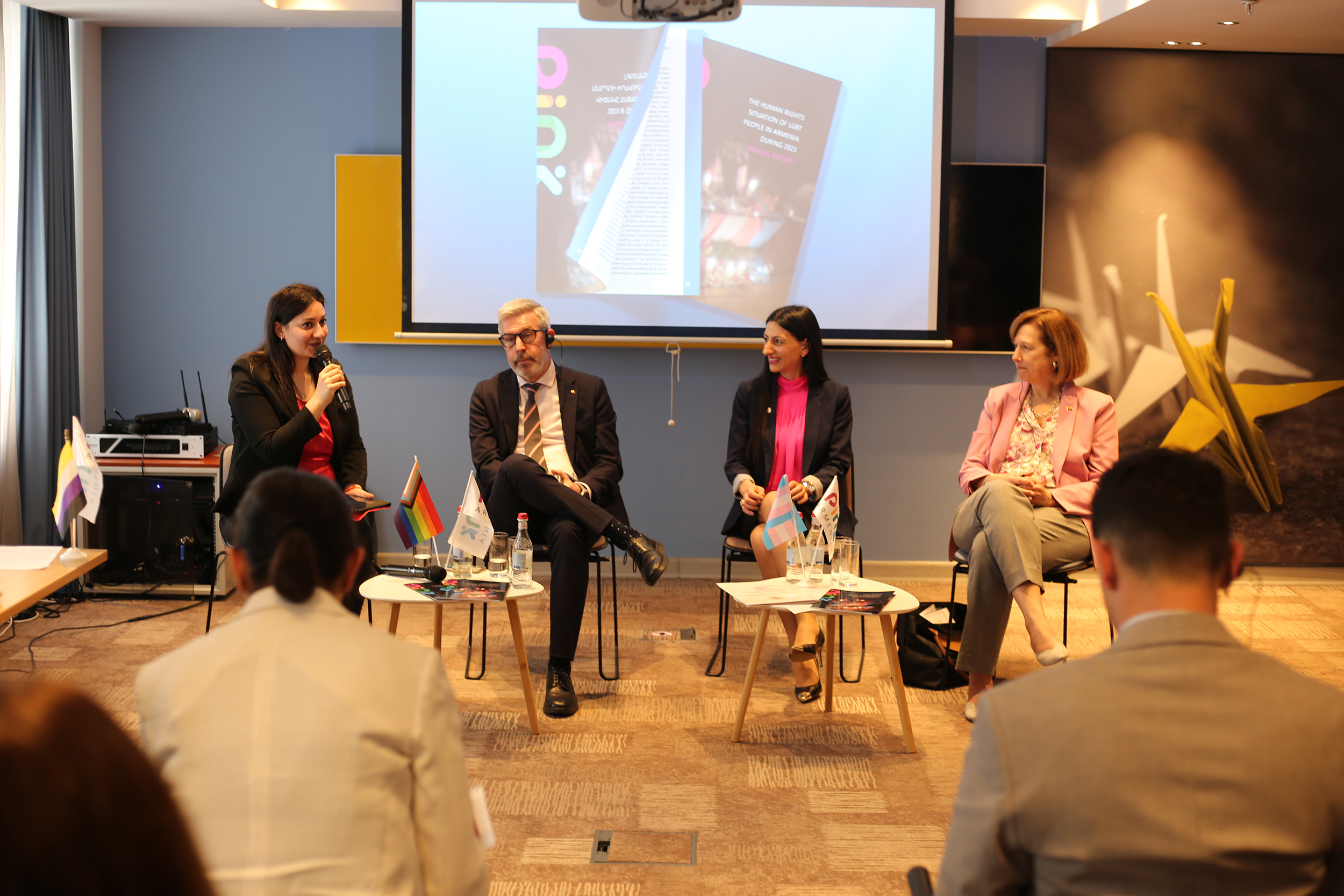Recap | January 2023
Summary of the 2022 LGBT+ Community Needs Assessment
From October to December 2022, Pink human rights defender NGO assessed the needs of the LGBT+ community living in the Republic of Armenia. The questionnaire was filled in by 104 people, including citizens of the Republic of Armenia and immigrants from India, Lebanon, Iran, and Syria living in the RA. Respondents include cisgender women and men, non-binary and transgender people.
The results show that many LGBT+ individuals continue to face discrimination and stigma in educational and healthcare settings, when looking for work, or in the workplace itself. Many LGBT+ people who took part in the survey use professional services: legal counseling (on issues of discrimination, physical violence, hate speech, disclosure of personal data), social worker’s and psychological support. However, the survey results show that some services, particularly healthcare and psychological services, are largely not affordable for LGBT+ people. The majority of respondents prefer to receive free professional support from LGBT+ rights NGOs. This is because many people fear discrimination and mistreatment based on SCI. The main concerns and fears of LGBT+ participants living in the RA are related to rejection by family members and relatives, their safety, the polarization of society, and the country’s current socio-political and economic situation. Some respondents are concerned about the impossibility of starting a family and having children in Armenia.
2022 CRG Working Group Activity Results
As a result of the activities of the working group “Community Involvement, Human Rights and Gender Equality” (CRG) of the Country Coordinating Mechanism against HIV/AIDS, Tuberculosis and Malaria, in 2022, changes were made to two existing discriminatory legal acts of social and medical significance. By the decision of the Government of the Republic of Armenia, the previously existing grounds for denying care to elderly or disabled persons with HIV and smear-negative tuberculosis have been abolished. The discriminatory provision of the 2013 RA Minister of Health order was also canceled, according to which being gay was a ban on donating blood. Instead, a new item was included in the list of contraindications for blood donation: the presence of sexual relations with a non-regular partner within the last six months.
By the way, Mamikon Hovsepyan, Pink’s communications director, is the working group’s chairperson.
Annual Planning
From January 18 to January 21, 2023, the regular annual planning took place with the participation of the employees of Pink’s Yerevan and regional offices.
During the planning, Pink employees discussed current issues related to the organization’s activities.
Looking back on the achievements and challenges of the past year, we have done 2023 annual planning based on the development and improvement of Pink’s strategic directions. During the annual planning, the employees paid particular attention to the situational risks and opportunities after assessing the possible further actions.
Shurnukh Case Reopened
In 2018, a criminal case was initiated due to hate-motivated violence against a group of young people, including LGBT activists vacationing in Shurnukh village. The case has not yet been resolved; moreover, it was dismissed twice, and an amnesty was applied to the criminals. The case was closed for the second time in February 2021 due to the expiration of the statute of limitations. However, later the General Jurisdiction Court of First Instance of Syunik Region stated in its decision that the victims’ rights had been violated and the case should be reopened and examined. The RA Criminal Court of Appeal upheld the said decision.
On January 5, 2023, the Prosecutor’s Office of the Syunik Region canceled the decision of the Syunik Regional Investigation Department of the RA Investigative Committee to terminate the proceedings on the criminal case. And thus, it was ordered to continue the preliminary investigation and remedy the violation of the he victims’ rights. In fact, the case was reopened again almost two years later.




